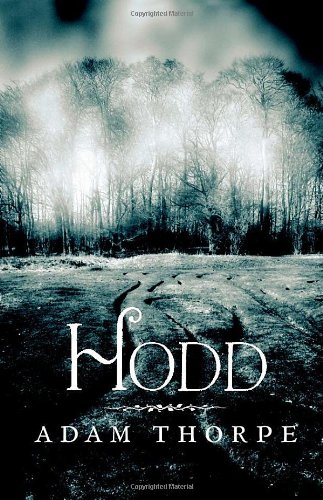Hodd
One of Britain’s most critically acclaimed authors, Adam Thorpe, has written another brilliant and original novel. The device is not entirely new (a hitherto unknown and now destroyed manuscript) but it is narrated in such a manner and with immense learning and knowledge of society and literature of the 13th century to engage the reader immediately. An amateur historian, Francis Belloes, still recovering from the trauma of the Great War, has translated from Latin the confessions/memoirs of an aged monk at Whitby. The monk-narrator, whose name remains unknown throughout the telling, reflects upon his life, in particular his time as a youth when he lived with the criminal Robert Hodd – known now to us as Robin Hood – and his band of cruel outlaws in Yorkshire (and not Nottingham as per the legend). The monk’s narrative is immersed in the now utterly alien medieval mind, expressed in the appropriate grammatical structure and learned asides. Hood, far from being the jesting, socially enlightened brigand of legend, is a charismatic insane cult leader with a mystical religion that opposes the society’s rigid theological and feudal hierarchy. Yet he imposes his own intolerant dictatorial regime on his outlaws and those that are unfortunate enough to cross him often meet a cruel end.
Our narrator follows the conventions of the day, by spelling places and people in a wondrous variety of ways, though the “translator” is considerate enough to spare the reader by regularising the rest of the manuscript. The quasi-archaic style means that the story cannot be rushed through, but absorbed with the slow pace of the medieval times it is set in. Belloes uses over 400 footnotes to explain references and peculiarities in the manuscript, which also include some of his critical thoughts on the Great War and English society after the end of the conflict.










